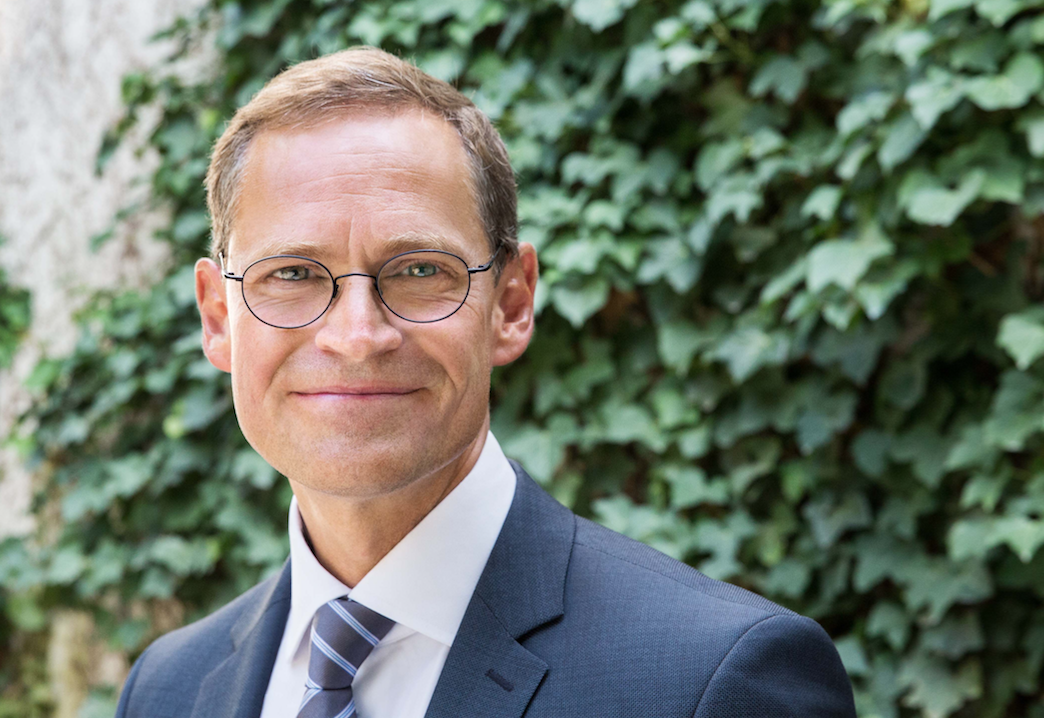
Photo: Screen-Shot-2016-05-18-at-09.06.49
Berlin: the ‘pacemaker’ of the digital revolution
18 May 2016
by Jonathan Andrews
By Michael Müller, Governing Mayor of Berlin
The digital revolution is well underway. And metropolises are where technological solutions for the cities of tomorrow are being developed–solutions that will enhance value creation, use resources more effectively, improve quality of life for the people in our societies, and expand democratic participation. The Berlin Senate sees enormous opportunity in utilising the broad spectrum of expertise in our city to put Berlin on track to becoming one of Europe’s leading smart cities–a city that prioritises networked technologies in order to put it at the front of the digital revolution and improve quality of life.
The Berlin Senate adopted its Smart City Berlin strategy in April 2015. As a growing city, Berlin has a strong foundation for seeing its strategy through a vibrant startup scene, countless spinoffs from our colleges and universities, well-known industrial enterprises with incubators and accelerators where startups and established companies can meet and cooperate, an extraordinary range of universities and research institutions, and a climate that embraces innovation. The working group, Smart City Berlin Network, has united more than 100 companies, colleges and universities, and research institutes dedicated to creating tomorrow’s Berlin and is an integral part of the Smart City Berlin strategy. More than 300 research groups in Berlin are working on projects that will help cities meet the challenges of the future.
Many of these projects are already demonstrating what smart solutions can do for us. For instance, we’ve been expanding citizen participation with the platform mein.berlin.de since 2015. Experts in Berlin are working on cross-sectoral, manufacturer-independent solutions for connecting devices and appliances in the home. With around 2,000 electric passenger and commercial vehicles, about 500 charging points, and around 80 collaborative projects in progress, the opportunities offered by electric mobility can be seen and experienced right here in the international showcase Berlin. At the EUREF campus, a micro smart grid has been created that shows what an intelligent energy network might look like in the future. In the Kat-Leuchttürme project, seven partners from colleges and universities, the administration, and the Berlin Fire Department have joined forces to develop emergency and disaster management that involves the people of the city.
In view of the many innovative stakeholders here in the city, cooperation and the creation of networks are key. One model for these is Berlin’s Zukunftsorte (places of the future). Science and industry are integrated and in close proximity, joined by intelligent campus management with a vision. This constellation is already a resounding success at various locations in Berlin–Adlershof, Buch, and near our universities–and we want to transfer it to the Urban Tech Republic in Tegel, which is to be a state-of-the-art location where technologies for the city of tomorrow are researched, developed, manufactured, and put into practice.
In order to further boost digitalisation and Berlin’s development into a leading smart city, I joined the president of Technische Universität Berlin and many different stakeholders from business, science, and politics in starting an initiative. With the support of companies and research institutes, we created around 50 additional professorships in information technology. An Einstein Center Digital Future is to be established. We are working on becoming a trailblazer for the new 5G mobile communications standard–talks are underway with telecommunications companies on a pilot project to set up test beds. A new Digital Center of Excellence has been created. Our business development bank Investitionsbank Berlin has expanded its support for innovative companies.
The fact that Metropolitan Solutions [31 May – 2 June], as the world’s largest conference for smart city solutions, was held in Berlin for the first time last year and chose us as its venue this year, too, shows that Berlin is a great place for this industry gathering. And all those who are working on solutions to meet urban challenges–from climate-friendly mobility to efficient energy supply to new forms of housing–will find many sources of inspiration here in Berlin, as well as partners for a joint leap forward into the next technological era.
I am confident that the entrepreneurial spirit and the optimism in Germany’s capital will energise the visitors of the 2016 Metropolitan Solutions. And by the same token, Berlin will benefit from the intriguing new ideas these visitors from all over the world are bringing to Berlin. Berlin is a strong contender to become the pacemaker of the digital revolution.













